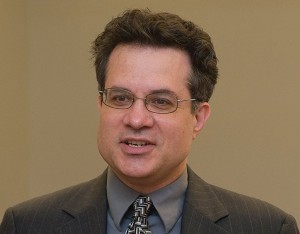As the Republican Party continues to roll toward selecting its presidential nominee, some party leaders and members of the media have begun to speculate about the possibility of a brokered convention.
Such a move almost certainly would hurt the Republicans in the general election, said election law and constitutional law expert Greg Magarian, professor of law at Washington University in St. Louis.

“Political parties try to shape election law to their advantage,” he said. “In recent years, the Republican Party has encouraged voter identification requirements that disproportionately exclude Democratic voters; drawn legislative districts to increase Republican representation beyond what the aggregate popular vote would dictate; and used Supreme Court litigation to win a presidential election against a popular majority.”
A contested convention, though a matter of politics rather than law, would be another sacrifice of voter participation at the altar of outcome-driven procedure, Magarian said.
“This time, however, the Republican Party would be sacrificing its own voters,” he said. “Whoever emerged as the nominee from a contested convention would probably start the general election at a significant disadvantage.”
For most purposes, the law treats political parties as private organizations, Magarian said. “Internal party rules, not law, largely govern the parties’ nominating procedures,” he said. “In particular, a combination of national and state party rules control the critical dynamic in the possibility of a contested convention: How are delegates bound to candidates?”
In the Republican process, Magarian said, the national party gives state parties partial, meaningful autonomy about how to select delegates and whether or how to “bind” delegates to particular candidates.
“Most delegates are bound to vote for particular candidates on the first convention ballot.” he said. “Many are bound on a second ballot. By a third ballot, nearly all delegates would be unbound. If, however, the Republican convention were sufficiently chaotic — if a candidate were to come to the convention with a bare majority of delegates theoretically committed to support him — internal party rules theoretically might give way to practical politics. Again, the question would be one of politics, not law.”